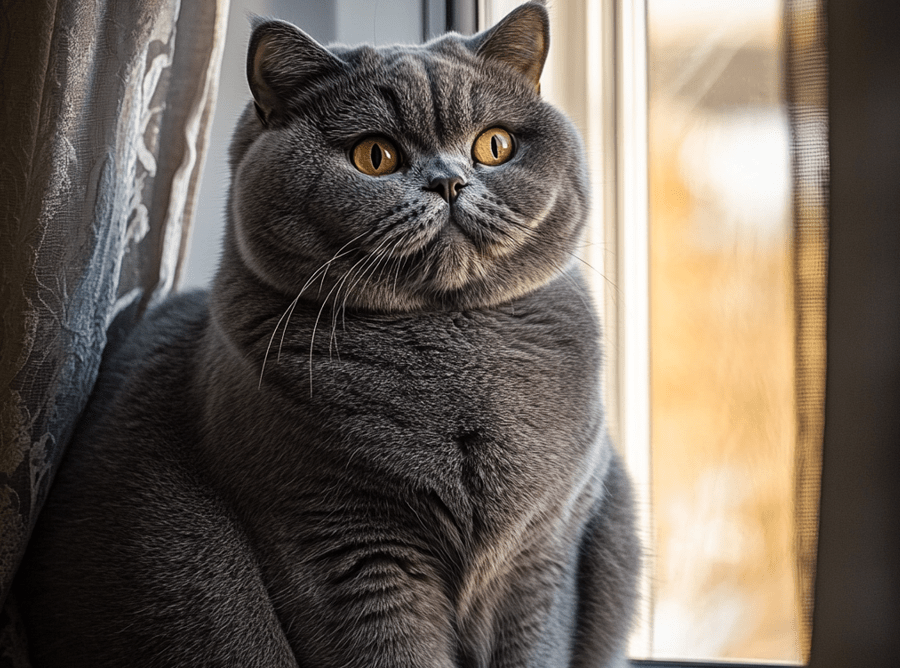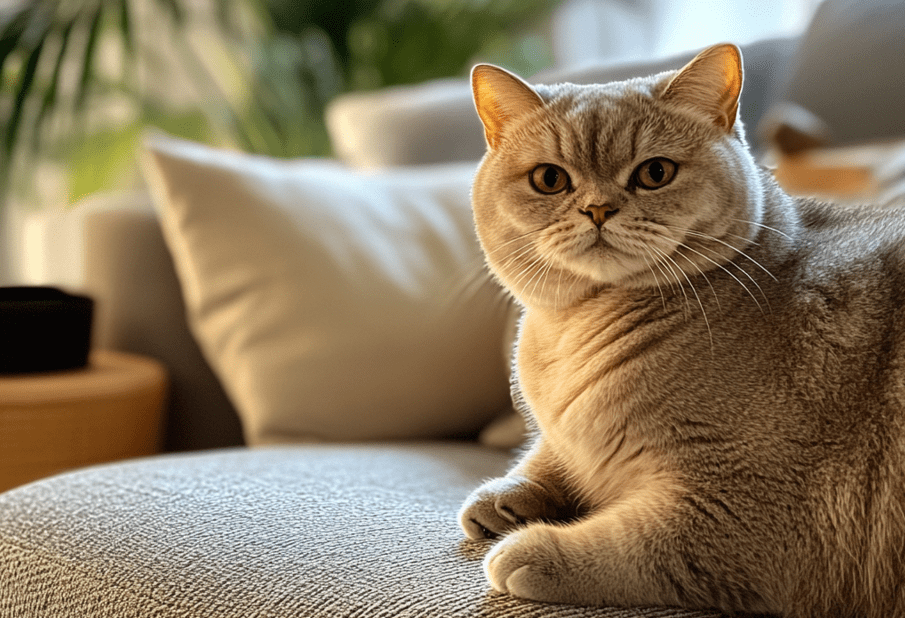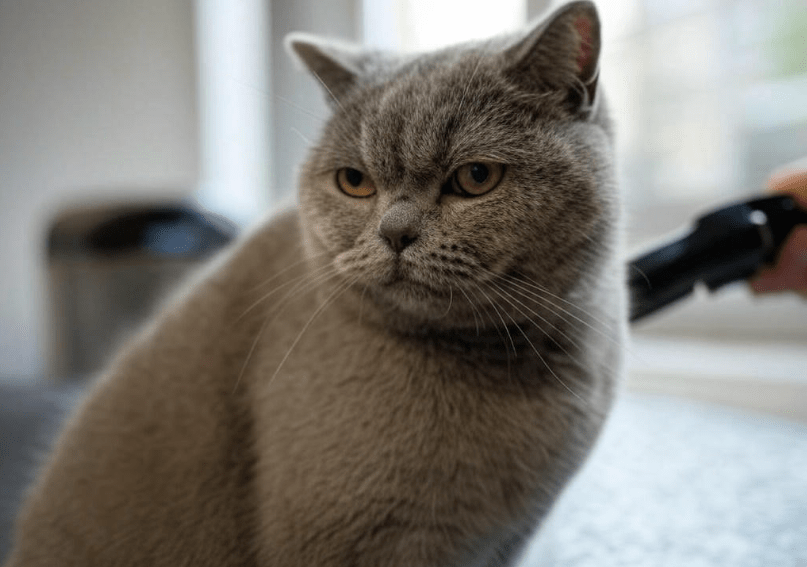
British Shorthair Cats are beloved for their plush coats, round faces, and gentle personalities. However, their dense fur and sensitive skin require special care to maintain their health and comfort. If your British Shorthair suffers from skin sensitivities, choosing the right shampoo is crucial to prevent irritation, dryness, or allergic reactions. This comprehensive guide will help you navigate the world of pet grooming products to find the best shampoo for your British Shorthair’s sensitive skin, ensuring they stay clean, comfortable, and healthy.
Understanding the British Shorthair’s Skin and Coat
The British Shorthair’s coat is one of its defining features—dense, short, and plush, giving it a teddy-bear-like appearance. While their fur is relatively low-maintenance compared to long-haired breeds, their skin can be prone to sensitivities due to genetics, environmental factors, or allergies. Sensitive skin in British Shorthairs may manifest as redness, itching, flaking, or excessive grooming, which can lead to discomfort or even infections if not addressed.
Why Sensitive Skin Matters
Sensitive skin in cats can be triggered by various factors, including:
Allergies: Food, environmental allergens (like pollen or dust), or grooming products.
Dryness: Low humidity or frequent bathing with harsh shampoos.
Parasites: Fleas, mites, or ticks can irritate the skin.
Infections: Bacterial or fungal infections can exacerbate skin issues.
Genetics: Some British Shorthairs are predisposed to dermatological conditions.
Using a shampoo formulated for sensitive skin can help soothe irritation, restore moisture, and protect the skin barrier, which is essential for your cat’s overall well-being.
When Choosing a Shampoo for British Shorthairs
Selecting the right shampoo for your British Shorthair’s sensitive skin involves understanding their unique needs and the ingredients that work best for them. Here are the key factors to consider:
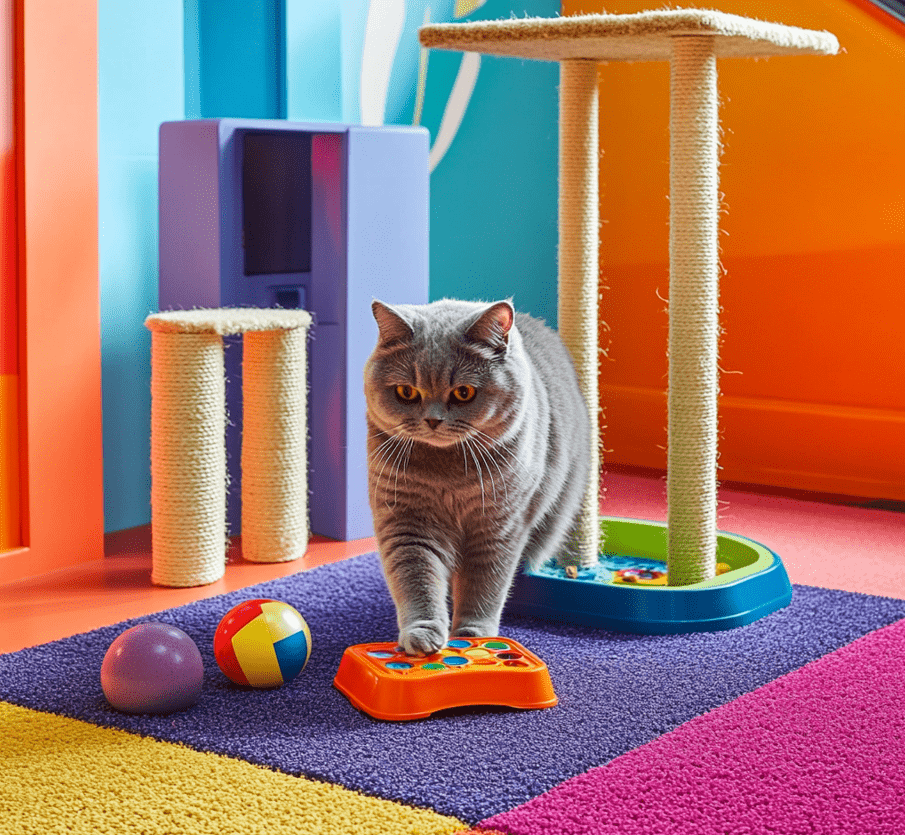
1. Hypoallergenic Formulas
Hypoallergenic shampoos are designed to minimize the risk of allergic reactions. These products are free from common irritants like artificial fragrances, dyes, and harsh chemicals. For British Shorthairs with sensitive skin, a hypoallergenic shampoo is often the safest choice.
2. Natural and Gentle Ingredients
Look for shampoos with natural, soothing ingredients that nourish the skin and coat without causing irritation. Some beneficial ingredients include:
Oatmeal: A natural anti-inflammatory that calms itching and moisturizes dry skin.
Aloe Vera: Soothes irritated skin and promotes healing.
Chamomile: Reduces inflammation and has calming properties.
Coconut Oil: Hydrates the skin and adds shine to the coat.
Shea Butter: Locks in moisture and protects the skin barrier.
Avoid shampoos with sulfates, parabens, or artificial colors, as these can strip natural oils and worsen skin sensitivities.
3. pH-Balanced for Cats
A cat’s skin has a different pH level than human skin, so never use human shampoos on your British Shorthair. Choose a shampoo specifically formulated for cats, with a pH level between 6 and 7, to maintain the skin’s natural balance and prevent irritation.
4. Moisturizing Properties
British Shorthairs with sensitive skin often suffer from dryness, which can lead to flaking or itchiness. Shampoos with moisturizing ingredients like glycerin or hyaluronic acid can help hydrate the skin and prevent dryness.
5. Medicated Shampoos for Specific Conditions
If your British Shorthair has a diagnosed skin condition, such as dermatitis or fungal infections, your veterinarian may recommend a medicated shampoo. These shampoos often contain active ingredients like chlorhexidine, ketoconazole, or miconazole to treat infections or reduce inflammation. Always consult your vet before using medicated products.
6. Fragrance-Free or Mild Scents
Strong fragrances can irritate sensitive skin and overwhelm your cat’s sensitive sense of smell. Opt for fragrance-free shampoos or those with mild, natural scents derived from essential oils like lavender or chamomile.
How Often Should You Bathe Your British Shorthair?
British Shorthairs are fastidious groomers and typically don’t require frequent baths. Over-bathing can strip their skin of natural oils, leading to dryness and irritation. For cats with sensitive skin, bathing every 4–8 weeks is usually sufficient, unless otherwise recommended by a veterinarian. If your cat has a specific skin condition, your vet may suggest a more frequent bathing schedule with a medicated shampoo.
Tips for Bathing Your British Shorthair
Bathing a cat can be a challenge, especially if they’re not accustomed to water. Here are some tips to make the process stress-free for both you and your British Shorthair:
Prepare in Advance: Gather all supplies (shampoo, towels, a non-slip mat) before starting.
Use Lukewarm Water: Ensure the water is neither too hot nor too cold to avoid discomfort.
Dilute the Shampoo: Diluting the shampoo with water can make it easier to rinse out and reduce the risk of residue irritating the skin.
Be Gentle: Massage the shampoo into the coat gently, avoiding the eyes, ears, and mouth.
Rinse Thoroughly: Leftover shampoo can cause irritation, so rinse until the water runs clear.
Dry Carefully: Use a soft towel to pat your cat dry, and keep them in a warm, draft-free area until fully dry.
Top Shampoos for British Shorthairs with Sensitive Skin
To help you choose the best shampoo for your British Shorthair, we’ve compiled a list of highly rated, cat-safe shampoos that cater to sensitive skin. Always check with your veterinarian before trying a new product, especially if your cat has a known skin condition.
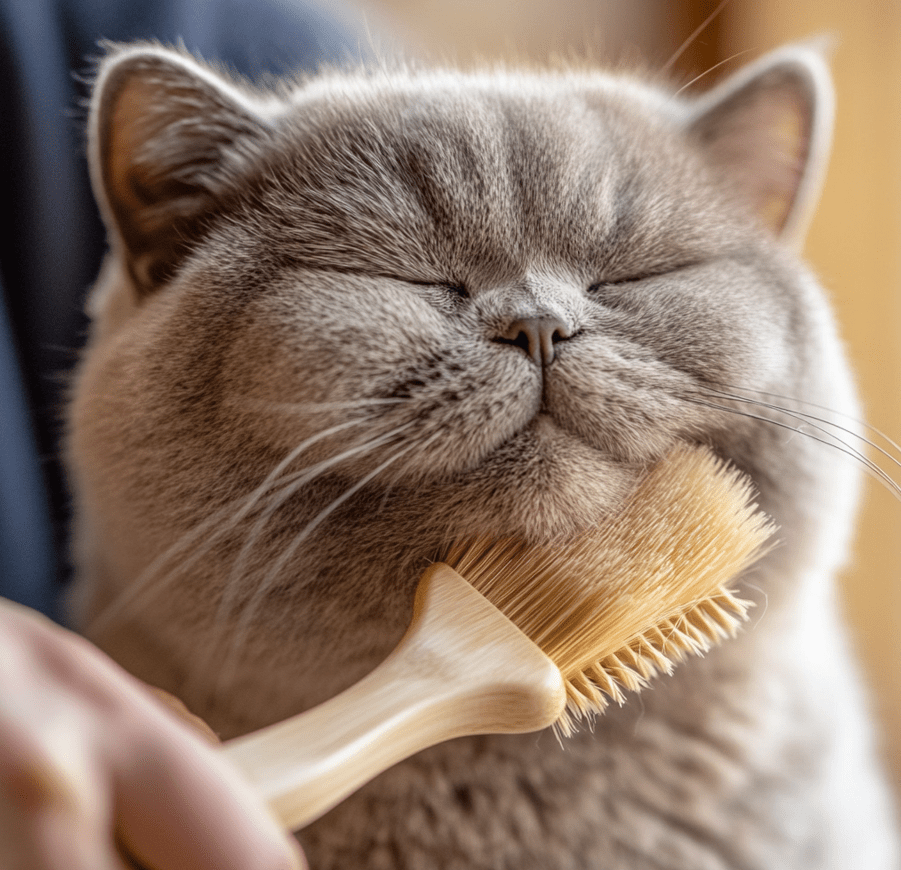
1. Veterinary Formula Clinical Care Hypoallergenic Shampoo
Key Ingredients: Aloe vera, coconut oil
Benefits: Fragrance-free, hypoallergenic, and pH-balanced for cats. Soothes irritated skin and restores moisture.
Best For: General sensitive skin and mild allergies.
2. Burt’s Bees for Cats Hypoallergenic Shampoo
Key Ingredients: Shea butter, honey
Benefits: 99.8% natural ingredients, free from sulfates and artificial fragrances. Gentle enough for frequent use.
Best For: Dry, flaky skin and sensitive cats.
3. TropiClean Oatmeal & Tea Tree Pet Shampoo
Key Ingredients: Oatmeal, tea tree oil, aloe vera
Benefits: Relieves itching and moisturizes the skin. The mild tea tree oil helps combat minor skin irritations.
Best For: Itchy skin caused by environmental allergens.
4. Petkin Itch Relief Shampoo
Key Ingredients: Oatmeal, chamomile, aloe vera
Benefits: Soothes hot spots and irritated skin. Gentle formula suitable for cats with chronic itching.
Best For: Cats with persistent itching or hot spots.
5. SynergyLabs Veterinary Formula Antiseptic & Antifungal Shampoo
Key Ingredients: Chlorhexidine, ketoconazole
Benefits: Medicated shampoo that treats bacterial and fungal infections. Requires veterinary supervision.
Best For: Cats with diagnosed skin infections.
Additional Grooming Tips for British Shorthairs with Sensitive Skin
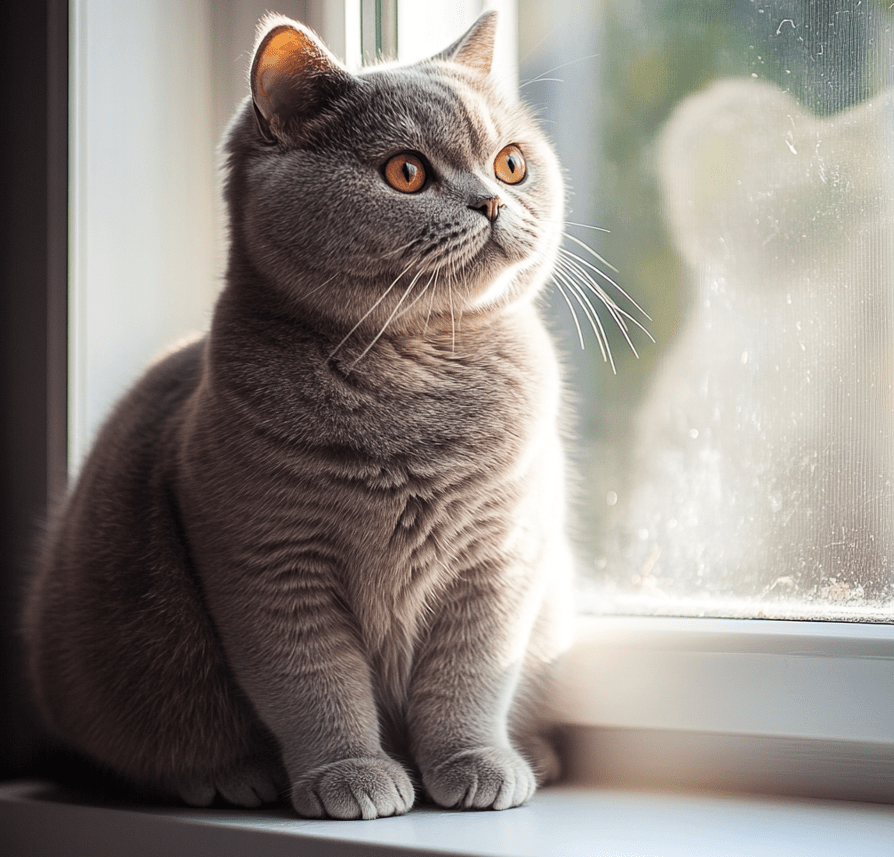
In addition to choosing the right shampoo, a holistic grooming routine can help maintain your British Shorthair’s skin and coat health. Here are some tips:
1. Regular Brushing
Brushing your British Shorthair 2–3 times a week helps distribute natural oils, remove loose fur, and prevent matting. Use a soft-bristled brush or a grooming glove to avoid irritating sensitive skin.
2. Monitor for Skin Changes
Keep an eye on your cat’s skin for signs of redness, bald spots, or excessive scratching. Early detection of skin issues can prevent them from worsening. If you notice any abnormalities, consult your veterinarian promptly.
3. Maintain a Healthy Diet
A balanced diet rich in omega-3 and omega-6 fatty acids can support skin health and reduce inflammation. Look for high-quality cat food with ingredients like salmon, flaxseed, or fish oil. Your vet may also recommend supplements for skin support.
4. Control Environmental Allergens
Minimize exposure to allergens by keeping your home clean, using air purifiers, and washing your cat’s bedding regularly. Avoid using heavily scented cleaning products or air fresheners, as these can irritate sensitive skin.
5. Flea and Parasite Prevention
Fleas and ticks can cause severe skin irritation, especially in sensitive cats. Use vet-recommended flea preventatives year-round to protect your British Shorthair.
Common Mistakes to Avoid When Grooming a British Shorthair
To ensure your British Shorthair’s skin remains healthy, avoid these common grooming mistakes:
Using Human Shampoos: Human shampoos are too harsh for cats and can disrupt their skin’s pH balance.
Over-Bathing: Excessive bathing can dry out the skin and exacerbate sensitivities.
Skipping the Rinse: Incomplete rinsing can leave shampoo residue, leading to irritation.
Ignoring Veterinary Advice: Always consult a vet before using medicated shampoos or if your cat’s skin condition worsens.
Using Low-Quality Products: Cheap shampoos may contain harsh chemicals that irritate sensitive skin.
When to Consult a Veterinarian
While a good shampoo can alleviate mild skin sensitivities, some conditions require professional attention. Contact your veterinarian if your British Shorthair exhibits:
1.Persistent scratching or grooming
2.Red, inflamed, or scabby skin
3.Hair loss or bald patches
4.A foul odor from the skin
5.Signs of infection, such as pus or swelling
Your vet may perform tests to identify the underlying cause of the skin issue and recommend a treatment plan, which may include medicated shampoos, oral medications, or dietary changes.
Conclusion

Choosing the right shampoo for your British Shorthair’s sensitive skin is an essential part of their grooming routine. By selecting a hypoallergenic, pH-balanced, and moisturizing shampoo with natural ingredients, you can keep your cat’s skin healthy and their coat shiny. Combine proper bathing techniques with regular brushing, a balanced diet, and flea prevention to ensure your British Shorthair stays comfortable and happy. Always monitor your cat for signs of skin issues and consult a veterinarian when needed. With the right care, your British Shorthair will thrive, showcasing their iconic plush coat and charming personality.

